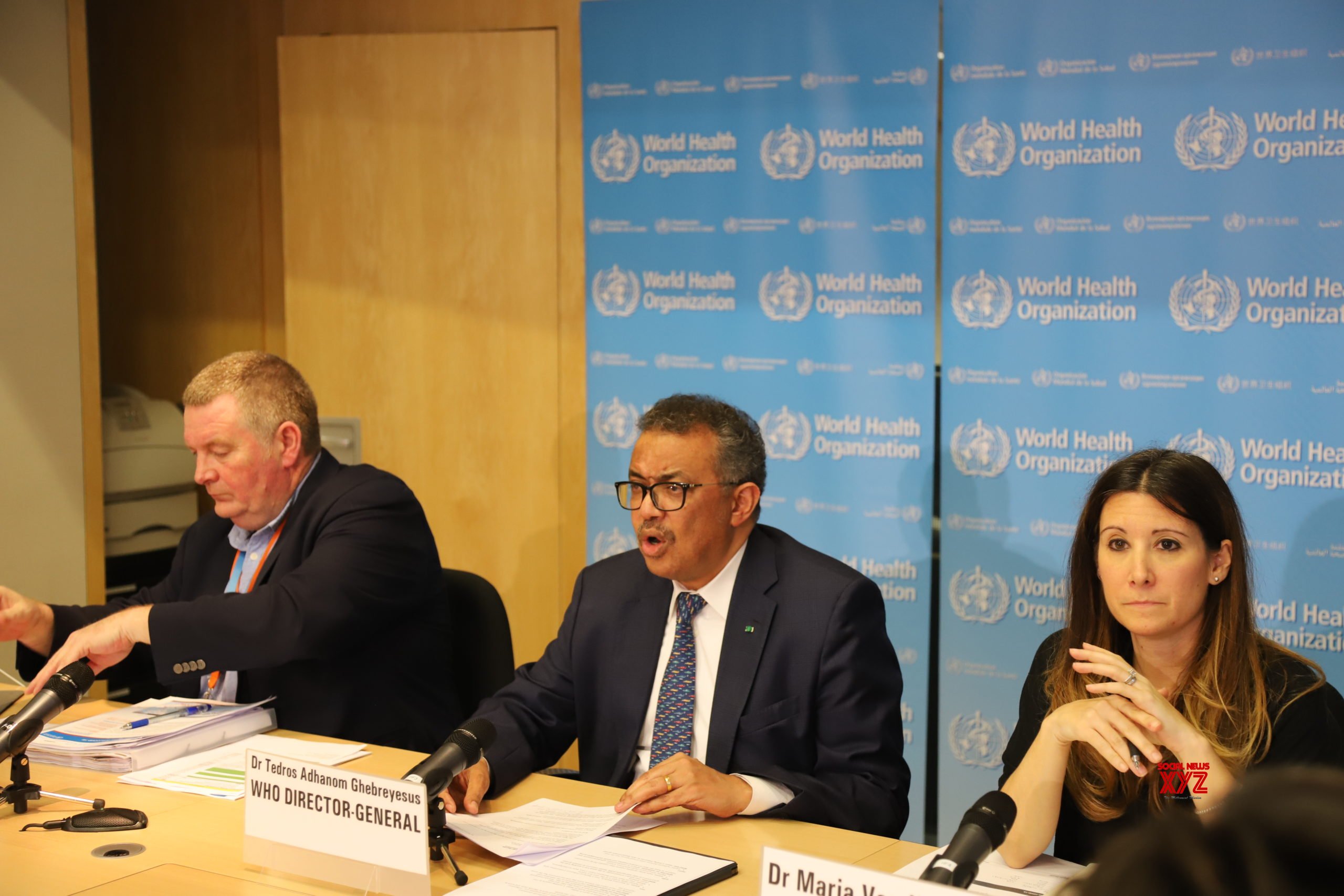WHO predicts 50 percent of Europe will catch Covid in the next two months
الصحة العالمية لا تستبعد إصابة “نصف سكان أوروبا” بـ أوميكرون خلال شهرين
AFP
More than half of people in Europe are projected to catch Omicron in the next two months, the WHO said overnight, as millions in China faced fresh lockdowns on the two-year anniversary of the world’s first Covid death.
The highly-transmissible variant has ripped through countries at breakneck pace, forcing governments to impose fresh measures and scramble to roll out booster shots.
Europe has been at the epicentre of alarming new outbreaks — hospital admissions and deaths are creeping up as well — and the World Health Organisation said that Omicron could infect half of all people in the region at current infection rates.
“The Institute for Health Metrics and Evaluation (IHME) forecasts that more than 50 per cent of the population in the region will be infected with Omicron in the next six to eight weeks,” said Hans Kluge, regional director for WHO’s European office.
The WHO’s European region covers 53 countries and territories including several in Central Asia, and Dr Kluge said 50 of them had Omicron cases.
Dr Kluge confirmed that Omicron is more transmissible than previous variants, but stressed “approved vaccines do continue to provide good protection against severe disease and death, including for Omicron”.
The warning bell came exactly two years after the first person died of a virus only later identified as Covid — a 61-year-old man in Wuhan, China, where the virus was first detected.
Since January 11, 2020, known fatalities in the pandemic have soared to nearly 5.5 million.
China largely tamed its initial outbreak with a mix of lockdowns, border closures and mass testing, but flare-ups in some major cities are testing that Zero Covid strategy just weeks before the Beijing Winter Olympics.
The city of Anyang in Henan province on Monday night told its five million residents to not leave their homes or drive cars on the roads, China’s official Xinhua news agency said.
Last week, the one million people in Yuzhou — also a city in Henan — were told to stay at home. Xi’an, home to 13 million people, is in its third week of lockdown.
China reported 110 new local virus cases on Tuesday, a tiny figure compared with the hundreds of thousands emerging daily in global hot spots such as the United States.
But they are a cause of alarm for Chinese authorities as Beijing prepares to host the Winter Games, with the event already expected to have tight coronavirus safety protocols.
Hong Kong, which has some of the toughest coronavirus border restrictions in the world, also ramped up its curbs on Tuesday to fight an Omicron outbreak, shutting kindergartens and primary schools until early February.
The same day, Japan extended until the end of next month a strict Covid border policy that bars almost all new foreign arrivals.
Japanese authorities also announced the reopening of mass vaccination centres as they fight an Omicron-fuelled surge.
Health experts maintain vaccines are among the most potent tools available against the pandemic.
But the deep scepticism and often violent opposition to jabs in many countries dramatically came into focus last week when Australia cancelled the visa of the world’s top men’s tennis player over Covid shot requirements.
The unjabbed, vaccine-sceptic Novak Djokovic won a legal challenge against the government on Monday, however, and is looking to defend his Australian Open title despite an outpouring of anger in the country over his exemption.
“I can imagine some people will be pretty angry about it,” said 22-year-old fan Harrison Denicolo, who felt Djokovic should be allowed to play.
In Italy, however, Prime Minister Mario Draghi urged people to get shots as new restrictions came into force on Monday, barring the unvaccinated from a large number of public transport and venues such as restaurants, gyms and cinemas.
“Most of the problems we are facing today depend on the fact that there are unvaccinated people,” he said.
The known Covid death toll in Poland, where the government has also urged people to get vaccinated, crossed 100,000, Health Minister Adam Niedzielski said on Tuesday.
France on Monday said Covid rules would be eased for schools as record-high case numbers shut down thousands of classes and sparked concern among parents and teachers.
Under the first change, parents will no longer be obliged to pick up their child immediately for Covid testing if he or she is a contact case.
قنا
جنيف: حذرت منظمة الصحة العالمية، يوم أمس، من أن أكثر من نصف سكان أوروبا قد يصابون بالمتحور /أوميكرون/ من فيروس كورونا /كوفيد – 19/ خلال شهرين، إذا استمرت وتيرة الإصابات الحالية.
وقال السيد هانس كلوغه مدير منطقة أوروبا في المنظمة، خلال مؤتمر صحفي، إن /أوميكرون/ يمثل “موجة مد جديدة من الغرب إلى الشرق تجتاح” المنطقة الأوروبية.
وأضاف “بهذه الوتيرة، يتوقع معهد القياسات الصحية أن يصاب أكثر من 50 في المئة من السكان في المنطقة ب/أوميكرون/ في الأسابيع الستة إلى الثمانية المقبلة”.
ويستند هذا التوقّع إلى ظهور سبعة ملايين حالة إصابة جديدة أبلغ عنها في جميع أنحاء أوروبا في الأسبوع الأول من عام 2022. وقد زاد عدد الإصابات أكثر من الضعف في فترة أسبوعين.
وأوضح كلوغه، في إشارة إلى بيانات جمعت خلال الأسابيع القليلة الماضية، أن /أوميكرون/ أثبت أنه أكثر قابلية للانتقال و”قد مكّنته الطفرات من الالتصاق بالخلايا البشرية بسهولة أكبر، ويمكن أن يصيب حتى الأشخاص الذين أصيبوا سابقاً بالعدوى أو تلقوا اللقاح”.
ورغم ذلك، شدد كلوغه على أن “اللقاحات المعتمدة تستمر في توفير حماية جيدة ضد الأشكال الحادة من الوباء وخطر الوفاة”.
وتشير دراسات حديثة إلى أن /أوميكرون/ أقل خطراً من المتحورات الأخرى لـ/كوفيد- 19/ في تعريض الناس للإصابة بأعراض قاسية. لكن لا يزال هذا المتحور شديد العدوى، ويمكن أن يصيب الأشخاص حتى لو تلقوا التطعيمات المطلوبة بالكامل.
وأدى العدد القياسي للأشخاص الذين أصيبوا به إلى تعرض النظم الصحية لإجهاد شديد.
وفي سياق ذي صلة، دعت المنظمة الدولية، إلى إجراء مزيد من الأبحاث لمعرفة ما إذا كانت لقاحات /كوفيد-19/ الحالية توفر حماية كافية ضد سلالة /أوميكرون/ المتحورة والشديدة العدوى، حتى مع قيام الشركات المصنعة بتطوير لقاحات من الجيل التالي.




